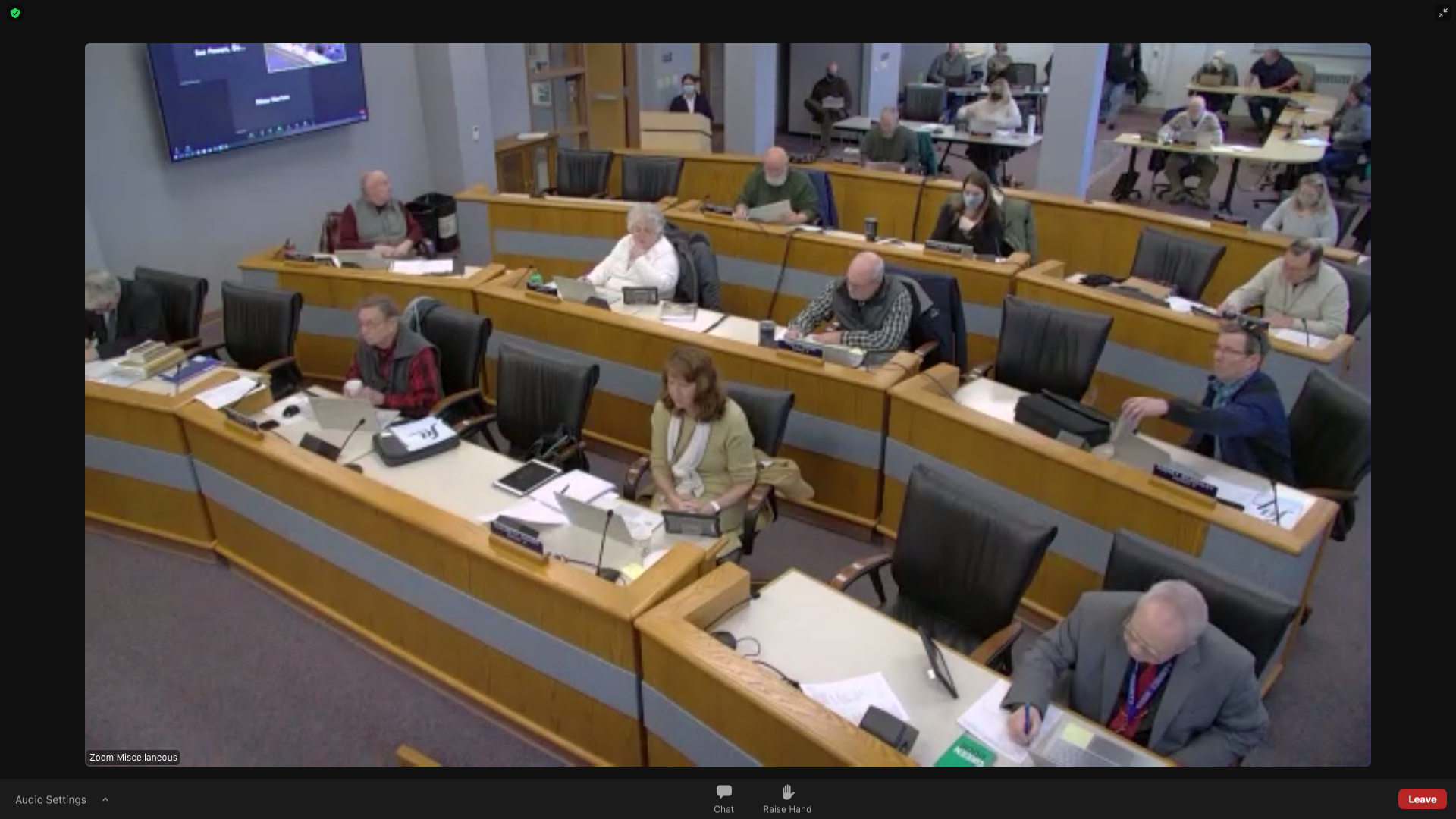Part of a series on how Door County’s use of $5.3 million in federal funding could affect social and economic issues in the community.
The Door County Board of Supervisors on Tuesday approved the initial year of funding for a new broadband coordinator position and began considering a range of other proposals for the $5.3 million the county will receive through the federal American Rescue Plan. The board could vote on the other proposals starting as soon as next month.
The county has put forward plans for the funding that would bolster home-based child care; create a new long-term addiction recovery center; create a new revolving loan fund for affordable housing construction, and help to fund a new affordable housing development in Sister Bay; fund new groundwater testing and invasive species control; cover some initial education costs for emergency services personnel; and install new address signs county-wide.
The County Board on Tuesday approved the first year of funding for the broadband coordinator position. The new county position is part of a much larger proposal to use $1 million of the federal funding to help accelerate the creation of a county-wide high-speed broadband internet network, including by ultimately funding the coordinator position for three years. The broadband plan was outlined in a 2021 report that was commissioned by the Door County Economic Development Corporation in collaboration with the county government, 11 municipal governments and three other private organizations.
Funding from the 2021 federal law is intended to stimulate faster economic growth over the long term, and the county has relatively broad latitude for how to use it. The money must be used for costs incurred since March 3, 2021. It must be obligated by the end of 2024 and must be spent by the end of 2026.
There is some uncertainty about the specific implications of those requirements, county administrator Ken Pabich said at the meeting Tuesday. For example, Pabich said, if the county uses some of the funding to engage in a contract for services starting now, the county might be able to use the funding to pay for that contract even through 2025 and 2026.
If that is the case, Pabich said, it could affect how much money the county allocates for the various proposals. Most of the proposals now only run through 2024.
Pabich said there is some urgency to move forward with the county’s proposals in order to maximize the number of years of contracts for services that could be covered by the federal funding.
County supervisors Tuesday were generally supportive of the proposals, while raising some questions about whether they would create long-term costs for the county and about how the county would in some cases work with outside organizations to administer the proposals.
In order to move forward, Pabich said, the county first needs to follow a legal process to “de-federalize” the funding. That process could start with the creation of a resolution by the County Board’s finance committee as early as its February meeting, Pabich said. The finance committee also would begin the process of creating formal resolutions to allocate funding for the proposals, Pabich said.
Some of the proposals — including those for child care, the addiction recovery center, housing, groundwater testing and invasive species control — could come back to the full County Board for a vote next month, Pabich said.
“Some of these are ready to go,” he said. “We’re at that point.”
County staff department heads who presented the proposals at the meeting also expressed urgency in some cases, saying they needed the County Board’s support in order to move forward.
County Health and Human Services director Joe Krebsbach said he’s waiting for the County Board’s approval before moving ahead with purchasing a building for the addiction recovery center.
Mariah Goode, the county’s Land Use Services director, said the Sister Bay affordable housing development is shovel-ready.
“She is literally ready to put a shovel in the ground in April,” Goode said of the project’s developer, Marissa Downs of Mosaic Ventures.
Some supervisors expressed concerns that the proposals would create ongoing costs for the county after the federal funding runs out. Pabich and the county staff department heads assured supervisors they had carefully crafted the proposals to avoid that as much as possible.
The addiction recovery center, for example, would be run by an outside organization, and the county’s ongoing costs would be limited to maintenance of the building, Krebsbach said.
The County Board decided to wait until its next meeting to hear a presentation about the proposal for new address signs county-wide. That decision was made in the interest of time — the meeting had already lasted more than four hours — and because that proposal isn’t as fleshed out, County Board vice chair Susan Kohout said.

